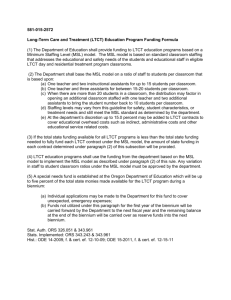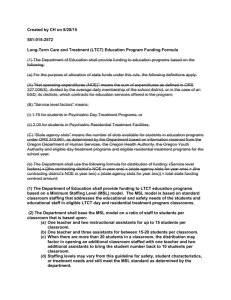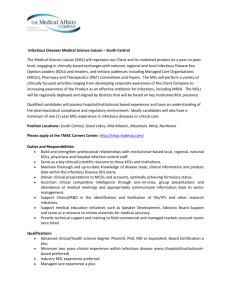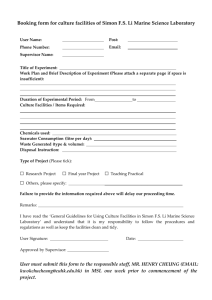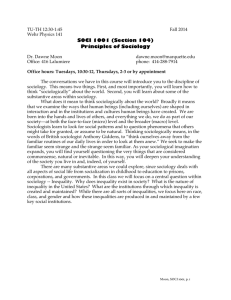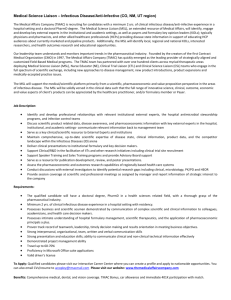Contemporary Social Issues: Social Inequalities and Social Justice
advertisement
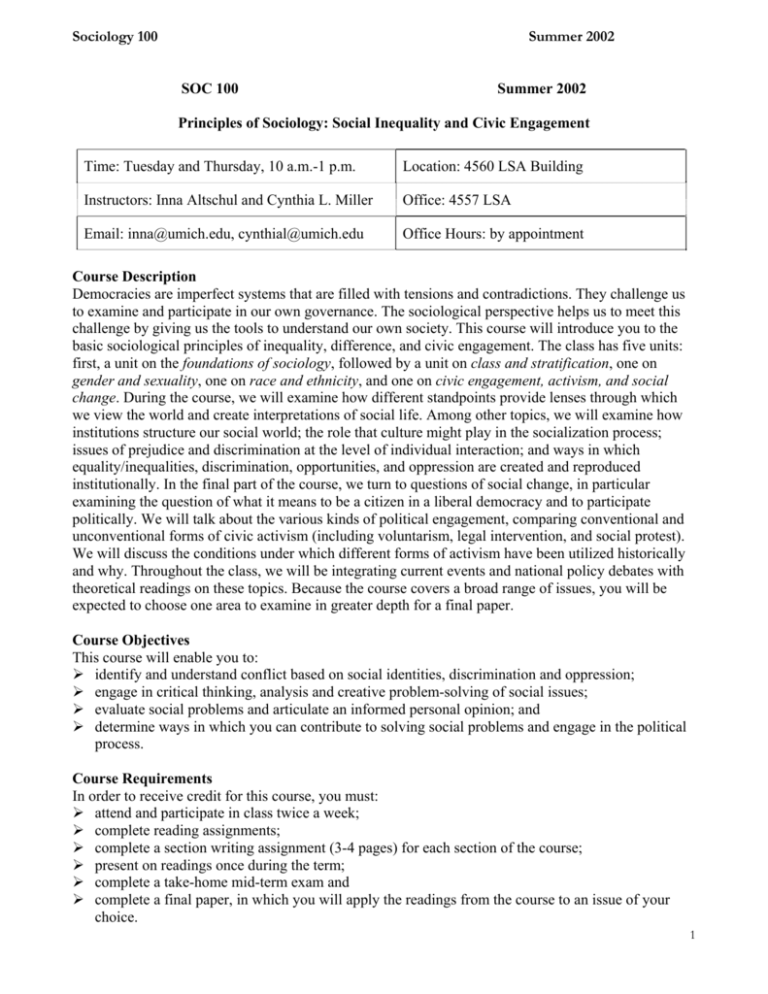
Sociology 100 Summer 2002 SOC 100 Summer 2002 Principles of Sociology: Social Inequality and Civic Engagement Time: Tuesday and Thursday, 10 a.m.-1 p.m. Location: 4560 LSA Building Instructors: Inna Altschul and Cynthia L. Miller Office: 4557 LSA Email: inna@umich.edu, cynthial@umich.edu Office Hours: by appointment Course Description Democracies are imperfect systems that are filled with tensions and contradictions. They challenge us to examine and participate in our own governance. The sociological perspective helps us to meet this challenge by giving us the tools to understand our own society. This course will introduce you to the basic sociological principles of inequality, difference, and civic engagement. The class has five units: first, a unit on the foundations of sociology, followed by a unit on class and stratification, one on gender and sexuality, one on race and ethnicity, and one on civic engagement, activism, and social change. During the course, we will examine how different standpoints provide lenses through which we view the world and create interpretations of social life. Among other topics, we will examine how institutions structure our social world; the role that culture might play in the socialization process; issues of prejudice and discrimination at the level of individual interaction; and ways in which equality/inequalities, discrimination, opportunities, and oppression are created and reproduced institutionally. In the final part of the course, we turn to questions of social change, in particular examining the question of what it means to be a citizen in a liberal democracy and to participate politically. We will talk about the various kinds of political engagement, comparing conventional and unconventional forms of civic activism (including voluntarism, legal intervention, and social protest). We will discuss the conditions under which different forms of activism have been utilized historically and why. Throughout the class, we will be integrating current events and national policy debates with theoretical readings on these topics. Because the course covers a broad range of issues, you will be expected to choose one area to examine in greater depth for a final paper. Course Objectives This course will enable you to: ¾ identify and understand conflict based on social identities, discrimination and oppression; ¾ engage in critical thinking, analysis and creative problem-solving of social issues; ¾ evaluate social problems and articulate an informed personal opinion; and ¾ determine ways in which you can contribute to solving social problems and engage in the political process. Course Requirements In order to receive credit for this course, you must: ¾ attend and participate in class twice a week; ¾ complete reading assignments; ¾ complete a section writing assignment (3-4 pages) for each section of the course; ¾ present on readings once during the term; ¾ complete a take-home mid-term exam and ¾ complete a final paper, in which you will apply the readings from the course to an issue of your choice. 1 Sociology 100 Grading Your final grade will be determined as follows: ¾ Attendance and thoughtful participation in class: ¾ Weekly writing assignments and presentation: ¾ Mid-term exam: ¾ Final paper: Summer 2002 30% 25% 20% 25% Course Format We strongly believe that you will enjoy and learn the material better if you engage it critically and actively. In order to do that, you must attend every class meeting, you must be prepared to discuss the readings, you must complete a weekly writing assignment, and present on the readings at least once during the semester. The readings and your assignments will be the core of our discussions, and will help you integrate the various components of the class. As you can see, weekly reading and participation constitutes the majority of the grading criteria. The importance of active participation cannot be emphasized enough. This course is what you make of it. We are here to facilitate the discussion, make sure you understand key points, and clarify any questions from readings. Readings The following books are required for this course: Ferguson, Susan, ed. Mapping the Social Landscape: Readings in Sociology, published by Mayfield Publishing, Mountain View, CA. All books are available at Common Language Bookstore. In addition, a COURSEPACK is available at Accu-Copy (518 E. Williams, 1½ blocks west of State Street). Books and coursepack will also be placed on reserve in the Undergrad Library. Please refer to the weekly reading list for the assigned readings. Assignments Section response papers are due by the beginning of Tuesday’s class period each week. We will discuss the mid-term exam during class the week before the exam. For the final papers, you will choose one of the main themes of the class that is of special interest or import to you and pick an issue related to that theme on which you want to focus your paper. Please choose an issue that is recent (within the last 60 years). For example, you may choose to write about issues of race in the U.S. media, the dynamic between the West and the broader Muslim world, discrepancies in school funding for public schools, or the problem of racial profiling by police departments around the country. We will provide you with a memo for both the mid-term exam and the final paper with more details of the process, requirements and grading criteria. 2 Sociology 100 Summer 2002 Weekly Topic & Reading List NOTE: All reading selections can be found in Mapping the Social Landscape (MSL) by Susan Ferguson or in the Coursepack (CP) Week 1 Thursday, June 27: Introductions, Concepts, and Definitions No readings. Introductions, overview of course and requirements, “ground rules” for class discussions. Week 2 Tuesday, July 2: Foundations of Sociology: Culture, Socialization, and Social Change Readings: CP—Ore, Part I, “Constructing Differences” MSL—Mills, “The Promise” (pp. 1-7) MSL—Babbie, “An Idea whose Time Has Come” (pp. 36-49) CP—W.E. DuBois, “Of our Spiritual Strivings,” from The Souls of Black Folks CP—Smith, “Introduction,” from The Everyday World as Problematic MSL—Kaplan, “Not our Kind of Girl,” (pp. 50-67) CP—Colomy, “Three Sociological Perspectives” NO CLASS THURSDAY, JULY 4—UNIVERSITY HOLIDAY Week 3 Section writing assignment for Foundations of Sociology is due by 10 a.m. Tuesday, July 9: Foundations of Sociology (cont.) CP—Ore, Part II, “Maintaining Inequalities: Systems of Oppression and Privilege” CP—Miner, “Body Ritual among the Nacirema” MSL—Gibson, “Warrior Dreams: Violence and Manhood in Post-Vietnam America” (pp. 93102) MSL—Adler and Adler, “Peer Power: Dynamics Among School Children” (pp. 165-181) MSL—Jankowski, “Gang Business: Making Ends Meet,” (pp. 181-192) MSL—Manger, “The Mass Media as a Power Institution” (pp. 442-453) CP—Berger, “Sociological Perspective—Society in Man” 3 Sociology 100 Summer 2002 Thursday, July 11: Class and Stratification CP—Karl Marx "On Classes" CP—Max Weber "Class, Status, Party" CP—Erik Olin Wright "Class Analysis" CP—Warner, Meeker, and Eells. "What Social Class is in America" CP—Langston, “Tired of Playing Monopoly” MSL—Clawson et al, “Dollars and Votes: How Business Campaign Contributions Subvert Democracy,” (pp. 428-442) MSL- Wilson, “When Work Disappears: The World of the New Urban Poor” (pp. 459-472) MSL- Oliver and Shapiro, “Black Wealth/White Wealth,” (pp. 285-300) Week 4 Section writing assignment for Class and Stratification is due today by 10 a.m. Each student should schedule a meeting to discuss the final paper. Tuesday, July 16: Class and Stratification (Cont.) CP- Huff, “Upside-Down Welfare” MSL—Eden and Lein, “Making Ends Meet: How Single Mothers Survive Welfare and LowWage Work” (pp. 314-328) MSL- Cookson et al, “Preparing for Power: Cultural Capital and Curricula in America’s Elite Boarding Schools” (pp. 572-583) CP: Kozol, “Savage Inequalities” CP- Chambliss, “The Saints and the Roughnecks” CP- Silverstein, “Millions for Viagra, Pennies for Diseases of the Poor” MSL- Navarro, “Why the U.S. Health Care System Does Not Respond to People’s Needs,” (pp. 519-534) Thursday, July 18: Gender and Sex MSL—Risman, “Gender as Structure” (pp. 329-338) MSL—Lorber, “Night to His Day” (pp. 111-114) MSL—Messner, “Boyhood Organized Sports and the Construction of Masculinities” (pp. 124138) CP—Fausto-Sterling, “The Five Sexes” CP—Bornstein, “Naming All the Parts” CP—Boswell, “The Transgender Paradigm Shift Toward Free Expression” Week 5 MIDTERM EXAMS DUE BY 10 a.m. on Thursday, July 25 Section writing assignment for Gender and Sex is due today by 10 a.m. Tuesday, July 23: Gender and Sex MSL—Sadker and Sadker,” Failing at Fairness: Hidden Lessons” (pp. 583-595) MSL—Williams, “The Glass Escalator: Hidden Advantages for Men in the ‘Female’ Professions MSL—Collins, “The Meaning of Motherhood in Black Culture” (pp. 609-613) MSL—Espiritu, “The Racial construction of Asian American Women and Men” (pp. 350-362) 4 Sociology 100 Summer 2002 MSL—Martin and Hummer, “Fraternities and Rape on Campus” (pp. 256-270) CP—Blumenfeld, “How Homophobia Hurts” CP—Feinberg, “Trans Health Crisis: For us it’s life or death” Hand out mid-term take-home exam; Discussion of expectations. Thursday, July 25: Sexuality No readings. Take-home mid-term exam due at 10 a.m. Week 6 No writing assignment due this week. Work on final papers. Tuesday, July 30: Race and Ethnicity: Concepts Film: Slam (set in Southeast D.C.) CP: McCarthy et al, “Race, Suburban Resentment, and the Representation of the Inner City in Contemporary Film and Television” CP: Pattillo-McCoy, “Black Picket Fences: Privileges and Peril among the Black Middle Class” CP: Rex, John. “The Concept of Race in Sociological Theory” CP: Miles, Robert, “Racism as a Concept” CP: Frederickson, George. “Social Origins of American Racism” CP: Patricia Hill Collins, “Defining Black Feminist Thought” Omi and Winant, selection to be distributed Thursday, Aug. 1: Race and Ethnicity: Global Issues Guest lecture on Ethnic Conflict (focus on Rwanda, Burundi, Congo, and Macedonia): Shamil Idriss, Chief Operating Officer at Search for Common Ground, Washington, D.C. (90 min.) Specific background reading to be distributed during previous class; also review website: www.sfcg.org To be distributed: reading on Multiculturalism CP: Jordon, Winthrop. “First Impressions: Initial English Confrontation with Africans” CP: Fanon, Frantz. “The Wretched of the Earth” CP: Kidder, Louise. “Colonial Remnants: Assumptions of Privilege” Week 7 Section writing assignment for Race and Ethnicity is due today by 10 a.m. Tuesday, Aug. 6: Race and Ethnicity: 20th and 21st Century U.S. CP: Brandt, “Racism and Research: The Case of the Tuskegee Syphilis Study” CP: Kotlowitz, The Other Side of the River CP: Reskin, “The Effects of Affirmative Action on other Stakeholders” CP: Cameron, “Gee, You Don’t Seem Like an Indian From the Reservation” CP: Uehara-Carter, “On Being Blackanese” MSL: Rubin, “Is this a White Country, or What?” (pp. 381-392) MSL: McIntosh, “White Privilege and Male Privilege” (pp. 363-373) 5 Sociology 100 Summer 2002 MSL: Abelmann and Lie, “Blue Dreams: Korean Americans and the Los Angeles Riots” (pp. 393-409) MSL: Feagin and Sikes, “Navigating Public Places” (pp. 409-419) Thursday, Aug. 8: Civic Engagement, Activism, and Social Change CP: Uslaner, Eric. “Inequality, Trust, and Civic Engagement” CP: Putnam, Robert “The Strange Disappearance of Civic America” CP: Putnam, Robert “Bowling Together” MSL: Marger, “The Mass Media as a Power Institution” (pp. 442-452) MSL: Kanagy and Kraybill, “How will the Internet Change Society?” (pp. 634-642) MSL: Greider, “One World, Ready or Not” (pp. 642-655) Week 8 Section writing assignment for Civic Engagement, etc. is due today by 10 a.m. Tuesday, Aug. 13: Civic Engagement, Activism, and Social Change and Wrap-Up: Conclusions and Evaluations Film: A Force more Powerful: A Century of Non-Violent Conflict (Peter Ackerman) Selections from Soul of a Citizen to be handed out CP: Coles, Robert, “Kinds of Service” CP: Galston, William “Political Knowledge, Political Engagement, and Civic Education” CP: Flanagan and Faison. “Youth Civic Development: Implications of Research for Social Policy and Programs” CP: hooks, bell “Feminism: A Transformational Politic” MSL: Johnson, “What can we do? Becoming part of the solution?” (pp. 655-667) FINAL PAPERS (10 pp.) DUE by 10 a.m., Wednesday, AUGUST 14 6
